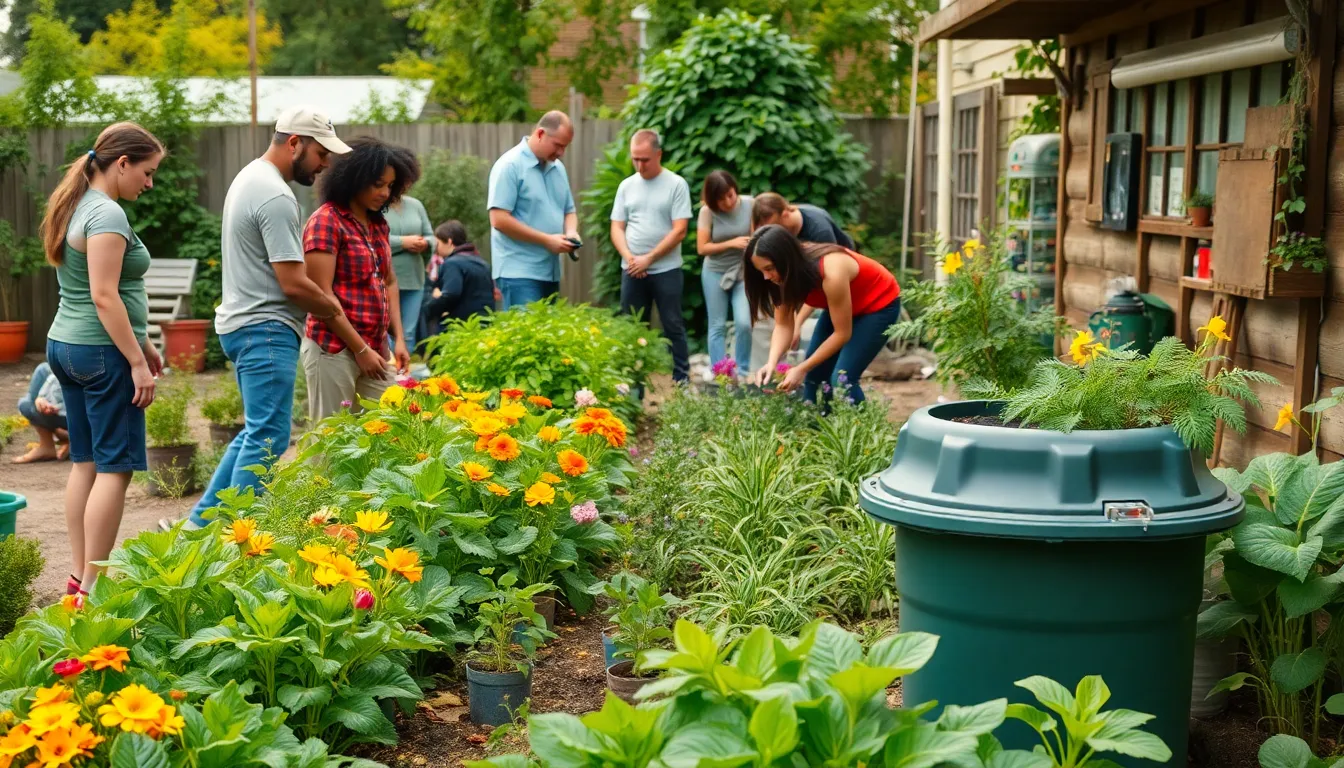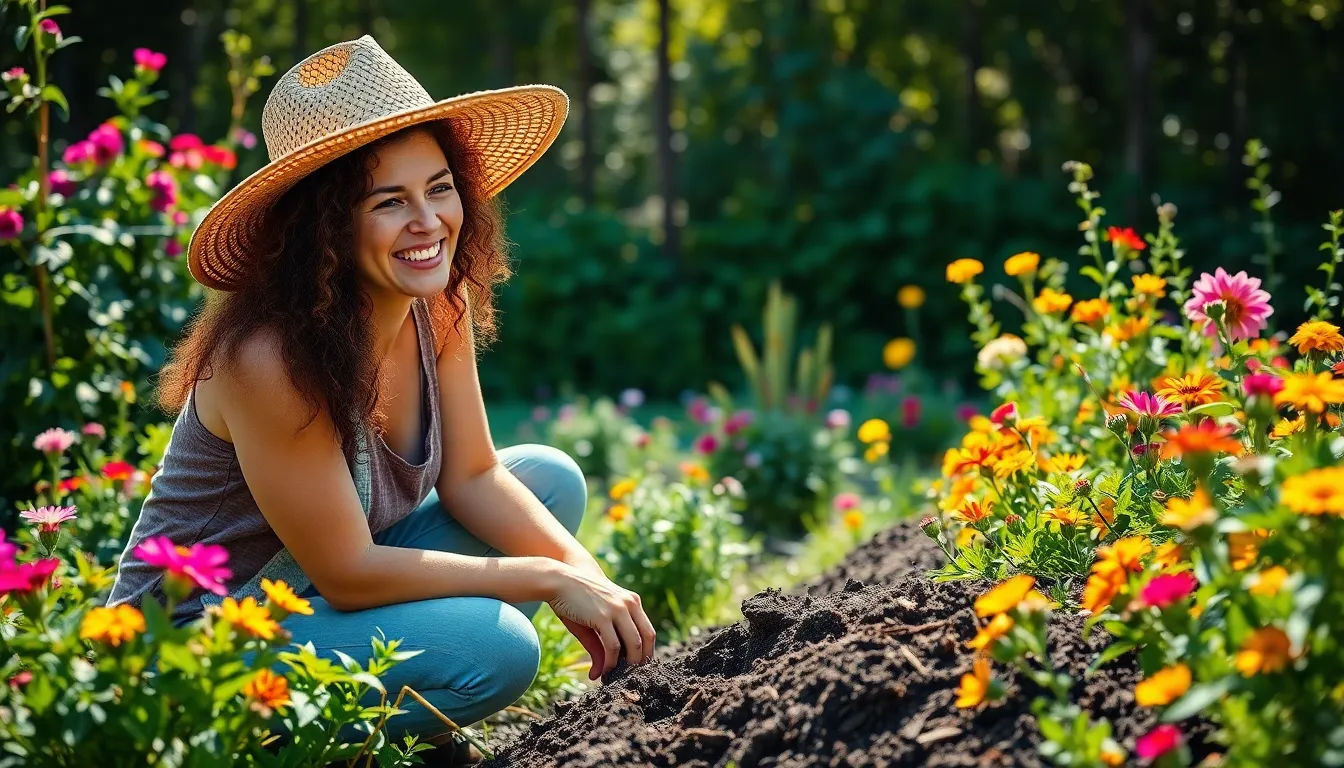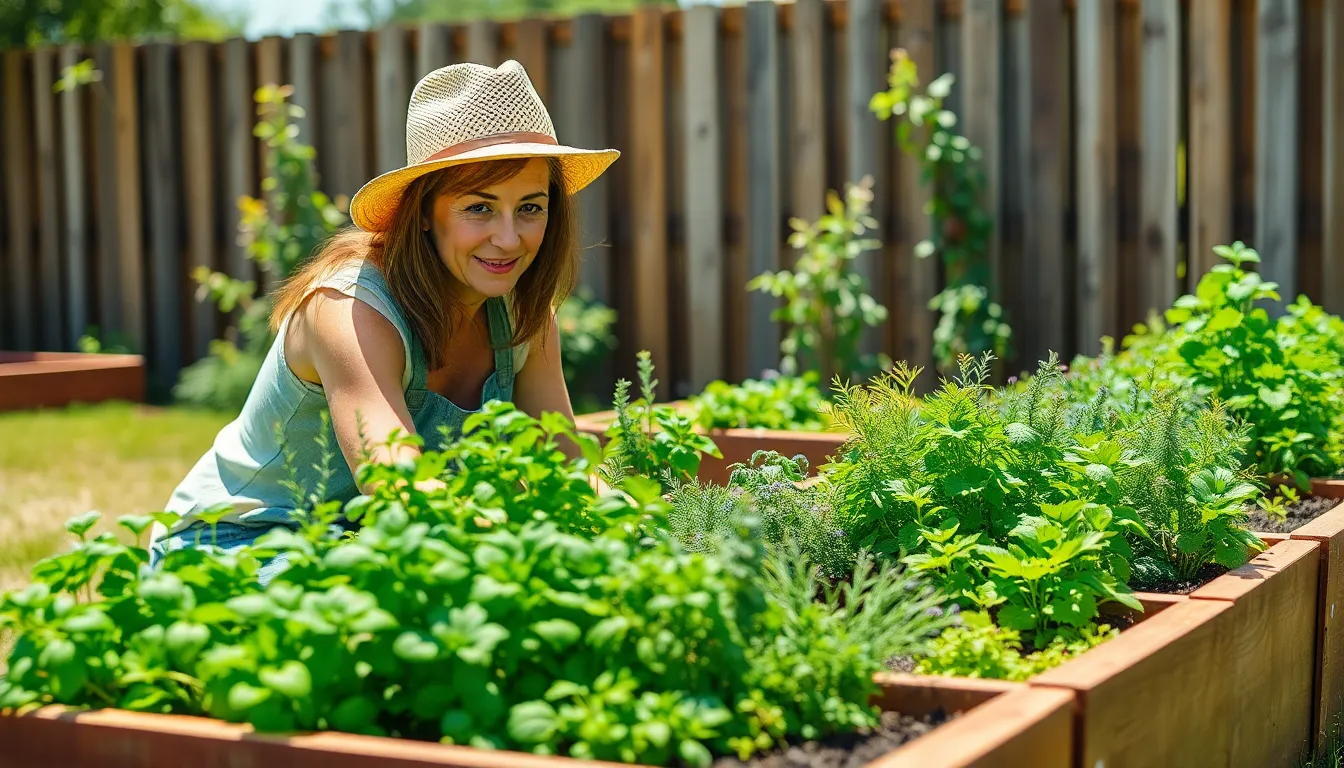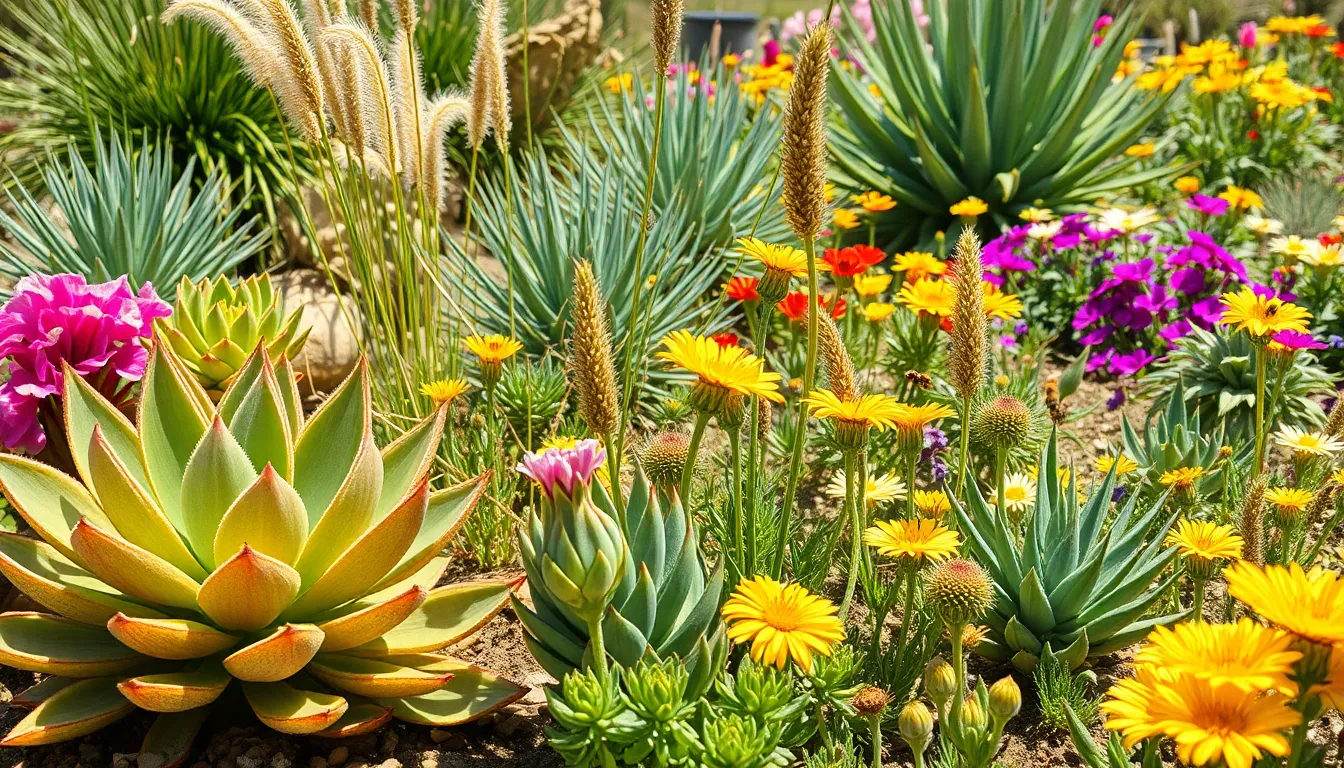In a world increasingly aware of its environmental challenges, gardening offers a unique opportunity to make a positive impact. Environmentally friendly gardening not only beautifies spaces but also nurtures the planet. By embracing sustainable practices, gardeners can create vibrant ecosystems that support local wildlife and promote biodiversity.
From composting organic waste to using native plants, eco-friendly gardening techniques are accessible to everyone. These methods reduce reliance on harmful chemicals and conserve precious resources. As more people seek to cultivate their green thumbs, understanding the principles of sustainable gardening becomes essential for fostering a healthier environment.
Table of Contents
ToggleUnderstanding Environmentally Friendly Gardening
Environmentally friendly gardening focuses on sustainable techniques that benefit both the planet and its inhabitants. This approach nurtures a harmonious relationship between humans and nature through mindful practices.
Definition and Principles
Environmentally friendly gardening refers to practices that prioritize ecological health. Key principles include the use of native plants, organic methods, and efficient water management. Native plants thrive in local climates, requiring fewer resources and supporting local wildlife. Organic methods eliminate harmful chemicals, promoting soil health and biodiversity. Efficient water management techniques, such as rainwater harvesting and drip irrigation, conserve this vital resource while maintaining garden health.
Importance of Sustainable Practices
Sustainable gardening practices offer numerous benefits for the environment and communities. These practices reduce pollution, enhance soil quality, and promote biodiversity. Utilizing compost enriches soil fertility and decreases landfill waste. Implementing integrated pest management controls pests naturally without harmful chemicals. Additionally, community engagement in environmentally friendly gardening, including considerations for porta potty toilet rentals during events, fosters educational opportunities, strengthens local economies, and reinforces connections between residents and their environment.
Benefits of Environmentally Friendly Gardening

Environmentally friendly gardening offers significant advantages, ranging from ecological improvements to personal health. These benefits create a positive ripple effect on communities and ecosystems.
Environmental Impact
Environmentally friendly gardening reduces pollution through lower chemical use and promotes biodiversity by attracting native wildlife. Sustainable practices, like composting and mulching, improve soil quality and decrease landfill waste. Utilizing rainwater harvesting systems conserves water and minimizes runoff. Native plants, adapted to local climates, require less care and resources while supporting vital pollinators and wildlife populations. Integration of these practices enhances overall ecological balance and resilience.
Health Benefits
Gardening in an environmentally friendly manner promotes physical and mental health. Engaging in gardening activities provides exercise that can improve cardiovascular health and muscle strength. Exposure to green spaces reduces stress and enhances overall well-being. Additionally, growing organic fruits and vegetables leads to higher nutrient intake while decreasing exposure to harmful pesticides and fertilizers. These health benefits contribute to a healthier lifestyle and promote community wellness.
Techniques for Environmentally Friendly Gardening
Environmentally friendly gardening incorporates sustainable techniques that promote a healthy ecosystem. Various methods enhance soil quality, conserve resources, and support biodiversity.
Organic Gardening Methods
Organic gardening focuses on using natural techniques to cultivate plants without synthetic chemicals. These methods include:
- Composting: Recycling organic waste creates nutrient-rich soil amendments, reducing landfill waste.
- Crop rotation: Alternating plant families in garden beds prevents pest buildup and soil depletion.
- Natural pest control: Introducing beneficial insects, such as ladybugs and lacewings, helps manage pest populations without harmful pesticides.
- Mulching: Applying organic materials like straw or wood chips retains moisture, suppresses weeds, and enriches the soil as it decomposes.
These practices support an ecological balance, enhancing plant health and resilience.
Water Conservation Strategies
Effective water management conserves this precious resource while supporting plant growth. Key strategies include:
- Drip irrigation: Targeted watering minimizes evaporation and delivers moisture directly to plant roots.
- Rainwater harvesting: Collecting rain in barrels reduces reliance on municipal water sources.
- Soil amendments: Incorporating organic matter improves soil structure, enhancing its capacity to retain moisture.
- Drought-tolerant plants: Selecting plants that thrive in dry conditions minimizes water requirements and sustains biodiversity.
These approaches optimize water use and foster sustainable gardening practices.
Native Plant Selection
Native plants provide numerous environmental benefits, making them essential for eco-friendly gardens. Consider the following points:
- Reduced maintenance: Native plants are adapted to local conditions, requiring less water and fewer fertilizers.
- Support for local wildlife: Native species provide habitat and food for birds, insects, and other wildlife, promoting a balanced ecosystem.
- Soil health: Deep-rooted native plants improve soil structure and drainage, enhancing overall soil quality.
- Local aesthetics: Incorporating native flora enhances the natural beauty and uniqueness of a garden.
Choosing native plants strengthens community biodiversity and supports resilience against pests and disease.
Tools and Resources for Eco-Friendly Gardening
Utilizing the right tools and resources enhances the effectiveness of environmentally friendly gardening. These elements streamline sustainable practices and educate individuals engaged in eco-friendly endeavors.
Eco-Friendly Tools
Gardeners benefit from using eco-friendly tools designed with sustainability in mind.
- Hand tools: Choose tools made from sustainable materials, such as stainless steel or recycled plastic handles. Examples include trowels, pruners, and weeders that minimize environmental impact.
- Compost bins: Opt for compost bins made from recycled materials to convert organic waste into nutrient-rich soil amendments.
- Soil testers: Utilize soil testers to analyze nutrient levels and pH balance, facilitating the use of organic fertilizers as needed.
- Rain barrels: Incorporate rain barrels to collect rainwater, reducing reliance on municipal water sources and promoting water conservation.
- Mulching equipment: Use mulching tools like shredders to create mulch from yard waste, which conserves moisture and improves soil health.
Community Resources and Workshops
Community resources and educational workshops provide vital support for eco-friendly gardening practices.
- Local cooperative extension offices: Access expert advice and resources through cooperative extension offices that offer guidance on sustainable gardening techniques.
- Community gardens: Participate in local community gardens that promote sustainable practices, encourage biodiversity, and strengthen community ties.
- Workshops and classes: Attend gardening workshops focused on organic gardening, composting, and permaculture principles to gain hands-on experience and knowledge.
- Online platforms: Leverage online forums and social media groups dedicated to sustainable gardening, enabling knowledge sharing and networking with like-minded individuals.
- Libraries and resources centers: Utilize educational materials from libraries and resource centers, which often include books and guides on eco-friendly gardening practices.
Embracing environmentally friendly gardening practices can transform not just personal spaces but also the broader ecosystem. By prioritizing sustainability and biodiversity, gardeners contribute to a healthier planet while enjoying the numerous benefits of organic gardening. The techniques discussed empower individuals to make informed choices that promote ecological balance and community engagement.
As more people adopt these methods, the collective impact grows stronger, fostering a culture of environmental stewardship. It’s clear that every small action in the garden can lead to significant positive changes for the environment and personal well-being. By nurturing the earth through sustainable gardening, individuals can create beautiful spaces that thrive in harmony with nature.




